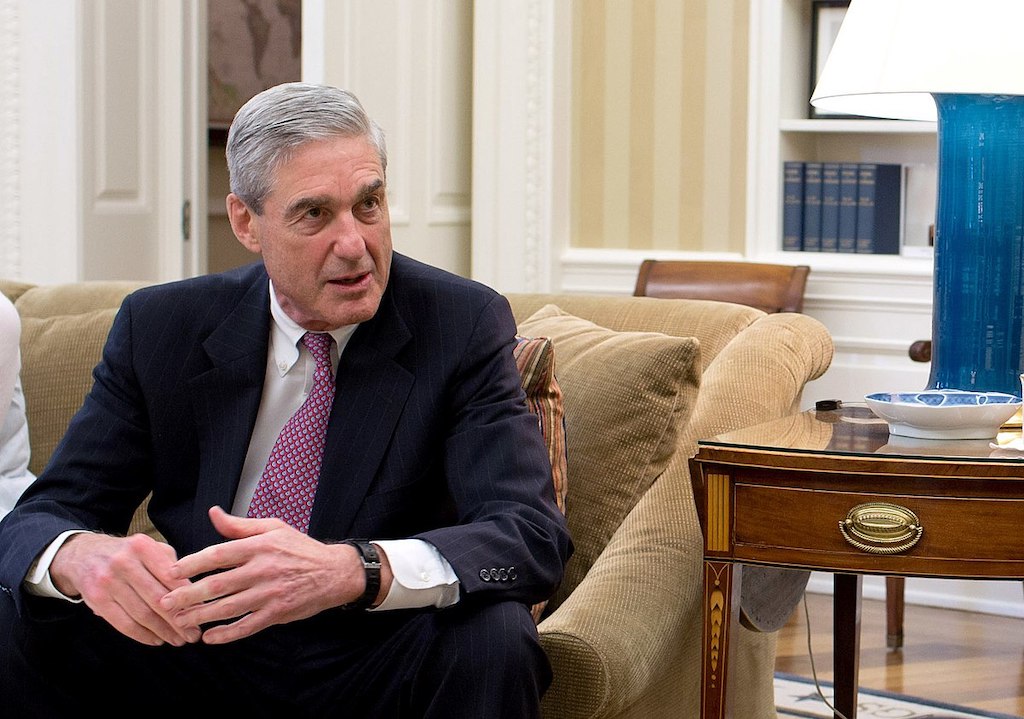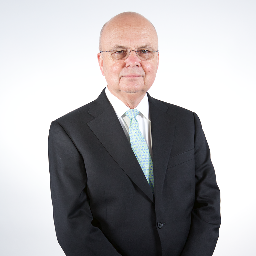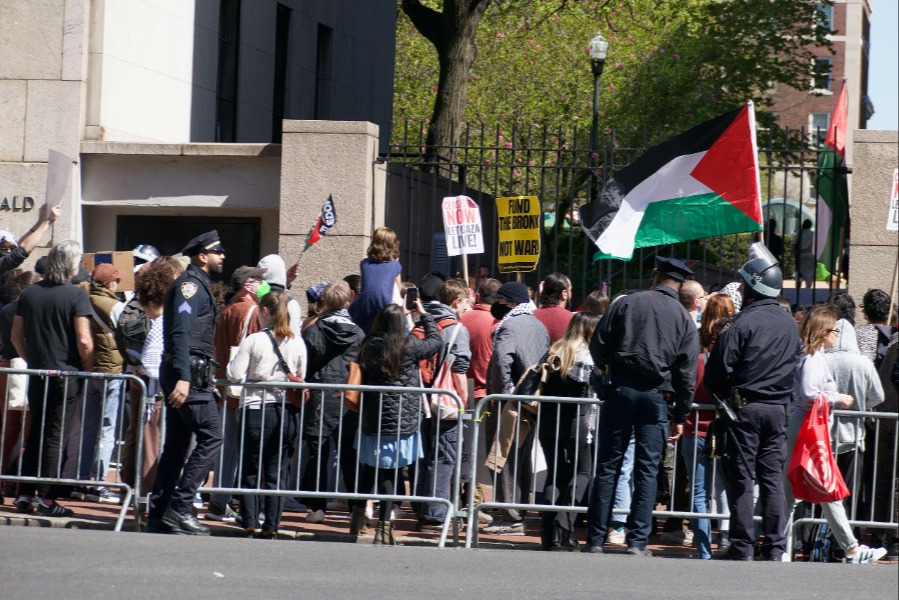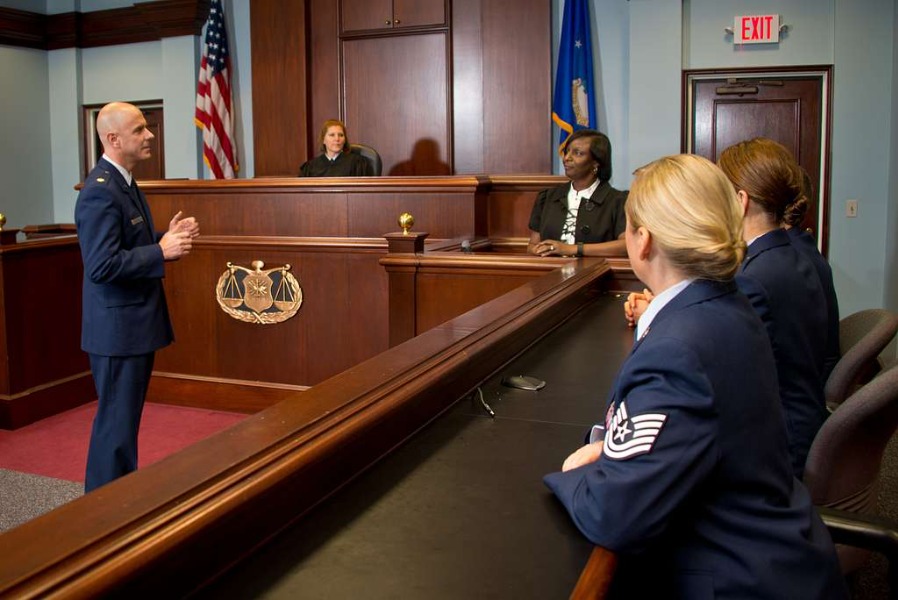What Mueller Got Right
Special Counsel Robert Mueller has concluded his investigation, and many questions remain. Chief among them is what animated Mueller’s decision not to reach a conclusion on possible obstruction of justice by the president. Why did he choose to follow Department of Justice policy prohibiting the indictment of a sitting president? Would he have indicted the president without that policy? Why did he seemingly leave it to Congress—and, perhaps inadvertently, to Attorney General William Barr—to make a final judgment on the president’s conduct?

Published by The Lawfare Institute
in Cooperation With

Special Counsel Robert Mueller has concluded his investigation, and many questions remain. Chief among them is what animated Mueller’s decision not to reach a conclusion on possible obstruction of justice by the president. Why did he choose to follow Department of Justice policy prohibiting the indictment of a sitting president? Would he have indicted the president without that policy? Why did he seemingly leave it to Congress—and, perhaps inadvertently, to Attorney General William Barr—to make a final judgment on the president’s conduct?
Some observers have criticized Mueller for not leaning forward more. Even those who have admired his approach to the investigation overall, like Paul Rosenzweig, argue that Mueller elevated the institution of the presidency over the rule of law by declining to opine on “whether or not the evidence supported the conclusion that the president committed crimes.” Rosenzweig points out that the special counsel “chose not to even characterize the president’s actions.”
In fact, Robert Mueller did precisely what he should have done and precisely what the country needed: He played it straight, defining his prosecutor’s role narrowly. The fact that he did so does not surprise us one bit.
We come to this judgment about Mueller from different angles. One of us was the director of the National Security Agency, then the principal deputy director of national intelligence and then the director of the Central Intelligence Agency. Each of those jobs involved extensive interactions with executives at the Federal Bureau of Investigation. The other of us was a CIA intelligence officer, manager and President’s Daily Brief briefer to the attorney general and FBI director soon after 9/11. Both of us left government service well before this administration.
Our lengths of service, our roles in government and our reasons for leaving differ. But we enjoy a significant link: Years ago, at different times and in quite different roles, we worked closely with Mueller as he led the FBI.
We witnessed a man of principle making hard choices—which abounded then, as they often do for senior managers in law enforcement and intelligence. When we had windows into how he reached decisions, we could see that they reflected a deep sense of knowing his role and staying within it. Nothing in our experience ever suggested an inclination to define his lane widely; if anything, his approach was to zero in on the essentials of what needed to be done.
Years later, Mueller faced a thorny problem. How to write this report? We are in agreement that he handled it as he handled sticky wickets back then: ethically and, notably in this case, in a manner that prepared the country for what may come next. And in this case, Mueller’s focus on the core of his mission alone was a service to the country.
The special counsel had an excruciatingly narrow channel to navigate. On one side lay the Scylla of under-reporting: giving the attorney general (and Congress) too little information to have full confidence in the evidentiary basis for his prosecution and declination decisions. The other side hosted the Charybdis of over-analyzing: opining about criminal charges that he knew he could not bring against the president due to Department of Justice policy.
It helps to look again at the job he accepted in May 2017. According to the Department of Justice letter announcing his appointment, Mueller was authorized to investigate “any links and/or coordination between the Russian government and individuals associated with the campaign of President Donald Trump” as well as both “any matters that arose or may arise directly from the investigation” and “any other matters within the scope of 28 C.F.R. S 600.4(a).” Deputy Attorney General Rod Rosenstein, in his role as acting attorney general, specifically authorized Mueller “to prosecute federal crimes arising from the investigation of these matters.”
But there’s also honor in what Mueller chose not to do.
He did not, either before the report or since its release, go public to deny or rebut repeated attacks on his integrity, and on the integrity of his staff, from Trump and the president’s allies. Instead, he let his team’s investigatory work do the talking.
Imagine how different the special counsel’s work would feel to the general public now if he’d been responding to tweets or otherwise counterpunching since spring 2017.
He did not test the limits of his mandate by zealously keeping all related cases under his control, by forcing counterintelligence issues into the report or by voicing all of the conclusions that he could have. Instead, he farmed out cases to other Department of Justice elements, used embedded FBI agents to take counterintelligence findings back to the Bureau, and defined his job as primarily explaining his prosecutions and declinations.
Imagine how much longer the special counsel’s work would still go on if he had retained all of the referred matters instead of letting others pursue them. And if he had chosen to push the limits of the special counsel’s role at every turn, the backlash could have been severe.
He did not step outside Department of Justice guidelines, including the Office of Legal Counsel’s 2000 memo barring the indictment of a sitting president. Instead, he avoided a fight he very well may have lost. He wisely deferred to the body assigned the constitutional role of assessing a sitting president’s fitness for office, the United States Congress—presenting it with the evidence that his investigation had uncovered.
Imagine how much more effectively the president might have been able to mobilize public opinion against a man who wouldn’t even follow his own institution’s policies. The president’s persistent cries of “WITCH HUNT!”—which Mueller’s painstaking investigatory work and prosecutions have systematically exposed as mere rhetoric—might have finally found something to stick to.
To be true to his tasking as special counsel and serve the American people again—as he had done from the 1960s when he led Marines in Vietnam to the 2010s when he extended his tour as FBI director under a president from a different political party—he needed to avoid even the perception of having put his thumb on the scale. He needed to keep his investigation immune to claims of politicization, even at the risk of criticism for playing it safe by not pronouncing judgments about the president’s guilt.
The text of the statute governing the special counsel, 28 C.F.R. S 600.8(c), is clear: “At the conclusion of the Special Counsel’s work, he or she shall provide the Attorney General a confidential report explaining the prosecution or declination decisions reached by the Special Counsel.” That’s it. And Mueller checked that box, without even the appearance of prosecutorial overreach.
But he did use the opportunity to do one thing more: bring the facts. Lots of them. In his report, Mueller describes the Russian attack on the 2016 election, the campaign’s and the candidate’s responses, and the president’s efforts to obstruct the inquiry in what Susan Hennessey and Quinta Jurecic call “excruciating detail.” The text goes well beyond the bare minimum that the governing statute required of Mueller, “explaining the prosecution or declination decisions,” but it does so without venturing into opinion.
Mueller knew he did not have the authority to hold the president to account for his behavior while the president is still in office. And he did not seek it. As he wrote in the report’s Volume 2, any next steps during this presidency must come from Capitol Hill: “The conclusion that Congress may apply the obstruction laws to the President’s corrupt exercise of the powers of office accords with our constitutional system of checks and balances and the principle that no person is above the law.”
Thus, the special counsel found a way to appropriately get hundreds of pages of information to the institution that—unlike him—is charged with considering any political act to come: the House of Representatives, the constitutional body able to initiate presidential impeachment. That seems a better use of his report than searching for the right words to characterize the president’s actions.






